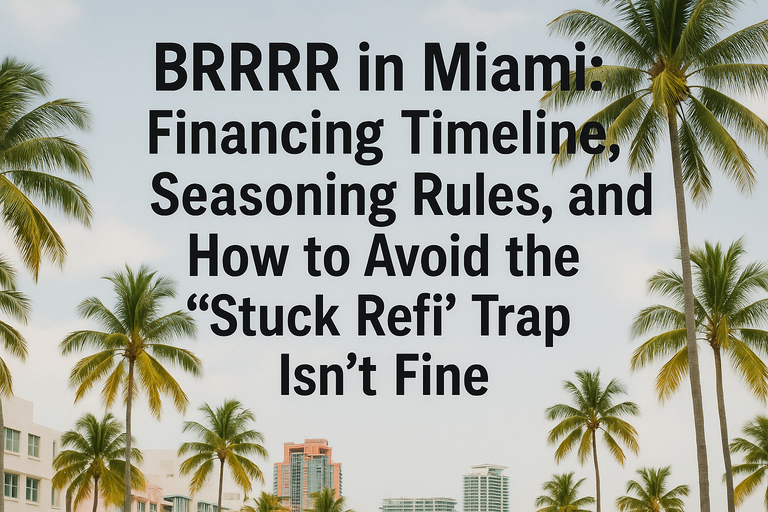Introduction: Rising Sea Levels and Miami Real Estate
Rising sea levels in Miami real estate and mortgages are no longer a distant concern—they are a present and pressing reality. As climate change accelerates, South Florida’s unique geography places homeowners, buyers, and lenders directly in the path of risk. From higher flood insurance costs to declining property values in vulnerable areas, both real estate investments and mortgage approvals in Miami are being reshaped by environmental forces.
How Rising Sea Levels Affect Miami Real Estate
Miami’s coastal location makes it one of the most climate-sensitive housing markets in the United States. Studies from NOAA show that by 2040, parts of Miami could face frequent tidal flooding, directly impacting property desirability and resale value.
-
Decreased Property Value: Homes in flood-prone areas may see reduced appreciation compared to inland properties.
-
Shifting Buyer Preferences: More buyers are turning to suburbs at higher elevations, such as Doral or Kendall.
-
Construction Changes: Developers now invest in elevated foundations, flood-resistant materials, and smart drainage systems.
Impact of Rising Sea Levels on Miami Mortgages
Lenders are adapting to climate risks as they evaluate mortgage applications. For Miami homebuyers, this means stricter conditions and higher costs.
1. Stricter Lending Standards
Banks now analyze climate risk maps before approving loans. Properties in “high-risk flood zones” may be denied financing or offered shorter loan terms.
2. Increased Flood Insurance Requirements
Mortgage lenders require comprehensive insurance coverage in FEMA-designated flood zones. Premiums have risen sharply under FEMA’s Risk Rating 2.0, affecting affordability.
3. Higher Mortgage Rates in Risky Areas
Some lenders add a risk premium for coastal properties, meaning buyers in low-lying neighborhoods may pay slightly more in interest compared to higher ground properties.
Rising Sea Levels and Miami Home Buyer Strategies
Despite the risks, Miami’s housing market remains strong. For buyers who still want to invest, smart strategies are key:
-
Research Flood Zones: Always review FEMA maps before buying.
-
Consider Elevation: Properties at least 10–12 feet above sea level tend to hold value better.
-
Ask About Resilience Upgrades: Homes with seawalls, sump pumps, and raised foundations attract lenders and buyers alike.
-
Plan for Insurance Costs: Factor in flood insurance premiums when calculating long-term affordability.
How Real Estate Agents & Mortgage Brokers Adapt
Local real estate professionals are adapting to rising sea levels in Miami real estate and mortgages by educating clients about risks and financing options. Mortgage brokers can:
-
Connect buyers with lenders open to coastal loans.
-
Highlight government-backed programs like FHA and VA loans that may offer more flexible flood-zone rules.
-
Advise on mortgage insurance and refinancing strategies for high-risk properties.
Future Outlook: Miami Real Estate in 2035 and Beyond
Experts predict that sea level rise will continue to affect Miami real estate and mortgages over the next decade. Some neighborhoods may experience climate gentrification, where wealthier buyers move inland to higher ground, driving up prices in areas like Little Haiti.
At the same time, new technologies such as elevated construction, sea walls, and improved drainage systems may extend the lifespan of coastal real estate. Miami’s mortgage market will likely balance between innovation and caution, ensuring both lenders and buyers remain protected.
Conclusion: Preparing for Tomorrow’s Miami
Rising sea levels are reshaping Miami’s real estate and mortgage landscape. While risks are undeniable, informed buyers can still make smart investments. By working with experienced mortgage brokers and real estate professionals, Miami homebuyers can navigate flood zones, insurance challenges, and financing hurdles to secure resilient, long-term property investments.
For expert guidance on mortgages in Miami’s evolving housing market, visit My Miami Mortgage Broker.






